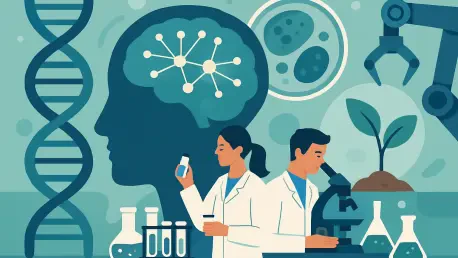
In a world continually battling the formidable foe that is breast cancer, a new contender has emerged, sparking unprecedented optimism and conversation in medical spaces worldwide. As advances in medical research unfold, Celcuity stands at the forefront, potentially redefining the approach to

In the ever-evolving landscape of biotechnology and pharmaceuticals, Ivan Kairatov stands as a respected authority, particularly in tech and innovation within the biopharma sector. He joins us today to discuss recent developments concerning a compound known as inidascamine. Originally developed by

Emerging at the intersection of biotechnology and artificial intelligence, Absci is positioning itself as a transformative entity in the drug discovery landscape. This strategic positioning comes as the company recently announced a significant $50 million capital raise, a maneuver that underscores

In a landmark study that redefines the landscape of cancer treatment, TAF1 has emerged as a crucial factor in regulating hematopoiesis—the process of blood cell formation often disrupted in cancer. This discovery by the pioneering team at the Sylvester Comprehensive Cancer Center, spearheaded by

In the realm of breast cancer research, Ivan Kairatov stands out as a biopharma expert bringing innovative insights to the understanding of tumor dynamics. Our conversation today centers around a groundbreaking study from Fox Chase Cancer Center, which deeply examines tumor growth rates and the

In the ever-evolving landscape of cancer therapies, one of the most significant breakthroughs has been the use of monoclonal antibodies and immune checkpoint inhibitors (ICIs). These therapies aim to enhance the immune system's ability to recognize and eliminate tumors. However, the effectiveness